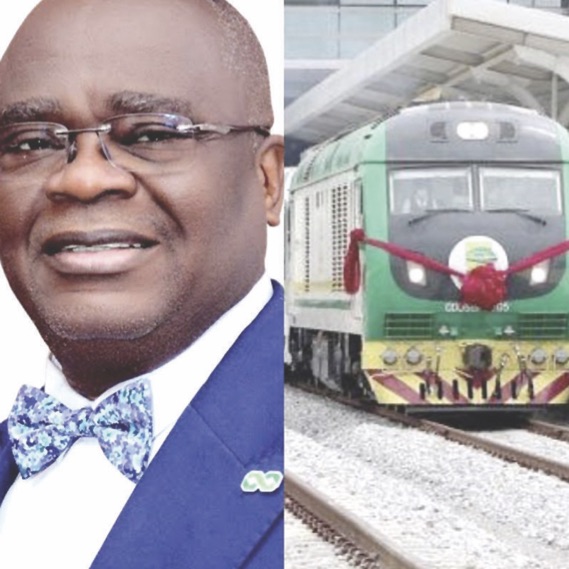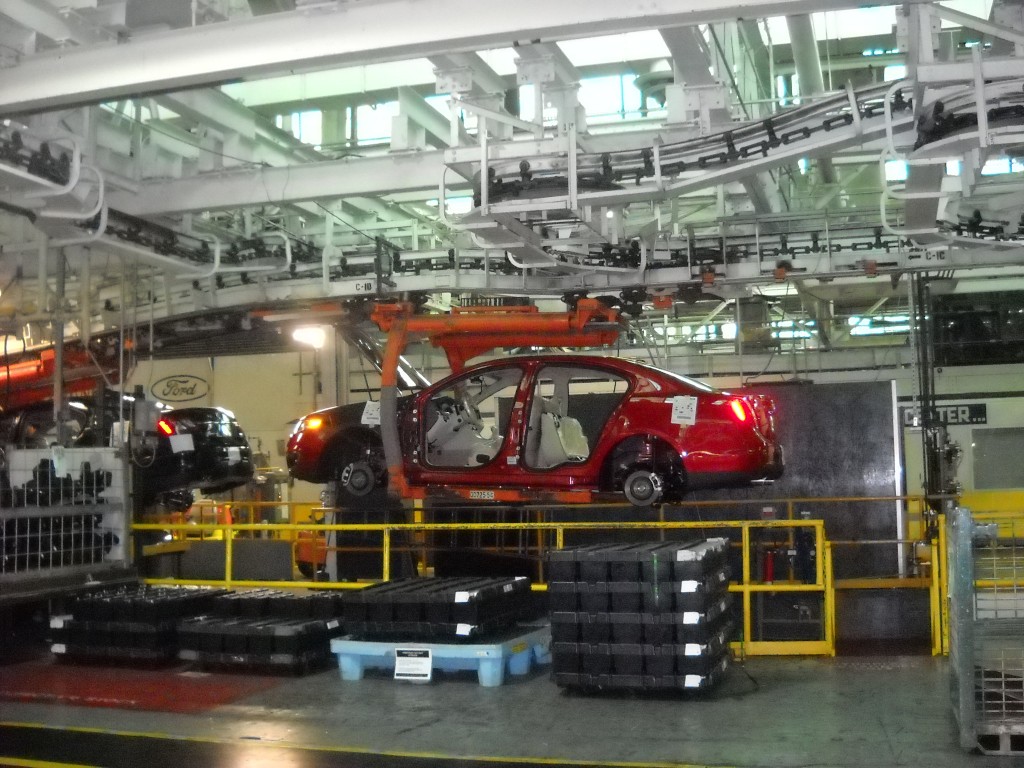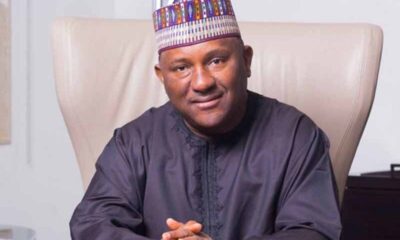Business
Forex crisis, declining investment threaten Nigeria’s 70% broadband target

Forex crisis, declining investment threaten Nigeria’s 70% broadband target
Nigeria’s efforts to achieve a 70% broadband penetration by 2025 are facing significant challenges due to the ongoing foreign exchange crisis, which is affecting further investments in telecom infrastructure.
The capacity of operators to invest in equipment has been diminished by the declining value of the Naira, coupled with a consistent decrease in Foreign Direct Investments (FDIs) into the telecom industry.
According to recent data released by the National Bureau of Statistics (NBS), FDIs in the telecom sector experienced a sharp decline of 70.5% in 2023.
The Minister of Communications, Innovation, and Digital Economy had last year declared that the country would need an estimated $2 billion investment to lay fiber optic cables nationwide to meet the broadband target. However, in the same period, the telecom industry managed to attract only $134.75 million in FDIs.
Local operators are also struggling to import new equipment for network improvement and expansion, as the dollar-to-naira exchange rate soars.
Impact of forex instability
According to Mr. Gbolahan Awonuga, the Head of Operations at the Association of Licensed Telecommunications Operators of Nigeria (ALTON), the significant rise of the dollar from about N460 last year to over N1,600 this year has disrupted the operators’ plans for importing equipment.
READ ALSO:
- Submit financial returns monthly or risk sanctions, CBN mandates microfinance, mortgage banks, DFIs
- How luggage stopped me from joining ill-fated chopper – Wigwe’s PA recounts ordeal
- Jigawa Assembly impeaches 2 principal officers, suspends 4 LG chairs
Furthermore, the Chief Financial Officer of MTN Nigeria, Mr. Modupe Kadri, discussed the company’s infrastructure investment plans for this year, noting the difficulty in justifying new investments to shareholders due to the forex issue. He stated,
- “The reality is that as a business, you continue to explore your options. We have a strict capital allocation framework that allows us to determine where we allocate our CapEx. However, the ultimate bottom line is the return to the shareholders.”
- “Now, if there is no investment case due to the terrible macroeconomic conditions we face, it becomes challenging to justify the necessary investments at the governance level. Nonetheless, we have made significant investments in enhancing our 4G and 5G networks, and our fiber assets are also increasing,” he added.
Kadri also lamented the current instability in the country’s forex market, emphasizing the critical need for forex stability to enable businesses to plan effectively and mitigate the impact of forex fluctuations on their bottom line.
Declining FDI
In a conversation with Nairametrics regarding the dwindling investments in the telecom industry, the Chairman of the Association of Licensed Telecommunications Operators of Nigeria (ALTON), Engineer Gbenga Adebayo, expressed significant concern. He pointed out that the telecom sector in Nigeria requires increased investment to thrive.
- “As indicated by last year’s National Bureau of Statistics (NBS) report, which highlighted a decline in Foreign Direct Investment (FDI), we are apprehensive that this trend may persist. The dynamics of the exchange rate are influencing many aspects of the industry,” he explained.
Adebayo elaborated on the investment downturn, noting,
- “The current investment figures are a clear indicator of the challenges facing the industry. This is adversely affecting the expansion of network infrastructure, and we fear that FDIs may continue to decline, further impacting the performance of operators.”
He also mentioned that, apart from the reduction in investment, the limited access to foreign exchange is impeding the operators’ capability to expand and implement more broadband infrastructure.
70% broadband penetration doubtful
With diminishing investments and the current forex issues confronting telecom operators and businesses across the board, it appears improbable that Nigeria will meet its broadband penetration target by next year.
According to the latest figures from the Nigerian Communications Commission (NCC), broadband penetration in Nigeria was 43.71% at the end of 2023.
This indicates that the country must boost penetration by nearly 27% from now until next year to achieve the 70% target outlined in the National Broadband Plan (NBP 2020-2025), a goal that necessitates swift infrastructure deployment nationwide.
Given the declining Foreign Direct Investments (FDIs) and the forex challenges operators are facing, achieving this target within the remaining 21 months of the Broadband Plan’s timeline seems unattainable.
When the Plan was initiated in March 2020, penetration was at 39.85%, as per NCC data. This means that over the past four years, the country’s broadband access has only improved by 3.86%.
Why it is important
A World Bank report has demonstrated that every 10% increase in broadband penetration can enhance a country’s GDP by at least 4.6%.
This significant finding underscores the importance of swiftly expanding broadband services in Nigeria, aiming to tackle a variety of socio-economic challenges, such as economic growth, broadening the tax base, and enhancing digital literacy and educational standards.
- This rationale motivated the Nigerian government to formulate a second National Broadband Plan (NBP 2020-2025) after successfully reaching a 30% penetration milestone with the first plan (NBP 2013-2018).
- The NBP 2020-2025 sets ambitious objectives, including achieving internet speeds of 15Mbps in rural areas and 25Mbps in urban areas by 2025.
- Additionally, it aims for the interconnection of 90% of all Local Government Areas by fiber and seeks to attain 70% population penetration. Another goal is ensuring that 100% of tertiary institutions are within 5km of a fiber Point of Access.
Moreover, the plan targets reducing the average cost of data to N390/Gb or less and establishing at least one local assembly or manufacturing plant for smart devices within Nigeria, further promoting the nation’s technological advancement and self-sufficiency.
Forex crisis, declining investment threaten Nigeria’s 70% broadband target
Business
CBN Policies, Foreign Inflows Drive Naira to Two-Year Peak

CBN Policies, Foreign Inflows Drive Naira to Two-Year Peak
Nigeria’s naira has extended its recent rally, trading at one of its strongest levels against the U.S. dollar in nearly two years, supported by sustained foreign portfolio inflows, tighter liquidity management, and targeted policy interventions by the monetary authorities.
A macroeconomic update by CardinalStone shows that the local currency has appreciated 6.9 per cent year-to-date at the official foreign exchange market, closing at ₦1,347.78/$—its strongest performance since early 2024. The appreciation reflects improved FX liquidity and growing confidence in the official trading window.
Despite the gains, a gap persists between the official and parallel markets. However, the premium narrowed from about 5.7 per cent to roughly 3.2 per cent following renewed foreign exchange interventions by the Central Bank of Nigeria. According to CardinalStone, the compression of the spread indicates stronger liquidity conditions in the official market, reducing incentives for speculative trading and arbitrage.
As part of efforts to further stabilise the FX market, the CBN recently authorised licensed Bureau de Change (BDC) operators to access foreign exchange from approved dealers at prevailing market rates, subject to a weekly cap of $150,000 per BDC and strict Know-Your-Customer (KYC) requirements. Under the framework, operators must sell unused FX balances within 24 hours, limit cash transactions to 25 per cent of total trades, and settle transactions through licensed financial institutions.
READ ALSO:
- Edo Governor Okpebholo Names Mercy Johnson-Okojie Special Adviser
- Many Feared Dead as Suspected Lakurawa Militants Attack Kebbi Communities
- AMAC Polls Shock: Another PDP Candidate Withdraws from FCT Race, Backs APC
With 82 licensed BDCs currently operating, CardinalStone estimates that potential FX supply to the segment could rise to about $50 million monthly. Although this remains significantly below pre-pandemic levels, the renewed supply has helped ease retail FX demand pressures and compress the premium in the parallel market.
While foreign inflows have strengthened the naira, analysts caution that continued appreciation could prompt profit-taking by offshore investors. CardinalStone estimates outstanding foreign portfolio investment (FPI) exposure at between $12 billion and $14 billion, noting that Nigeria’s carry trade remains one of the most attractive across emerging and frontier markets.
The firm added that assuming many investors entered the market at around ₦1,500/$, a move toward ₦1,200–₦1,250/$ could deliver over 22 per cent FX gains on currency alone. Such gains could heighten the risk of portfolio rebalancing or exits, particularly as political and election-related uncertainties begin to build.
Ahead of the latest meeting of the Monetary Policy Committee, analysts describe the macroeconomic signals facing policymakers as mixed. Inflation has started to moderate, while short-term interest rates have converged near 22 per cent, about 500 basis points below the 27 per cent Monetary Policy Rate (MPR).
However, the CBN has signalled low tolerance for excess liquidity, intensifying Open Market Operations (OMO) issuances and keeping the Standing Deposit Facility (SDF) attractive to absorb surplus funds and prevent renewed inflationary pressure. Analysts also point to concerns around election-related liquidity, which is expected to intensify in the second half of the year, with over 75 per cent of projected 2026 liquidity expected in the first half.
Looking ahead, CardinalStone expects the CBN to hold the policy rate while adjusting the asymmetric corridor to align SDF rates with OMO yields and preserve the attractiveness of naira assets for foreign investors. Forward market indicators suggest a softer currency path later in the year, with the naira projected to trade within a ₦1,350–₦1,450/$ range in 2026, despite the recent rally.
CBN Policies, Foreign Inflows Drive Naira to Two-Year Peak
Railway
Railway track vandalism: Urgent need for laws prohibiting scrap/metal picking to protect critical assets

Railway track vandalism: Urgent need for laws prohibiting scrap/metal picking to protect critical assets
By Onyedikachi Stanley Onovo
The wanton destruction and theft of Nigeria’s railway infrastructure and other critical public assets represent one of the gravest threats to national development and security.
Across the nation—from the Warri-Itakpe line to Abuja-Kaduna, the Eastern and Western Districts, Lagos-Ibadan, and throughout the Northern network—vandals systematically dismantle tracks, steal armoured cables, and pillage essential equipment. This crisis demands an immediate and robust legislative response.
The unending menace
The vandalism is perpetrated by a network of individuals, from local miscreants (“iron condemn”) to organised merchants who purchase and export stolen materials. Security reports and countless arrests underscore the scale of the problem:
In December 2023, a private security firm arrested 13 suspects for vandalising Abuja Mass Transit Rail assets. The suspects were said to be casual workers engaged by a Chinese company working on the railways, but said to have used the opportunity to steal the materials.
On June 2024, The Cable reported that the Nigerian Army arrested 47 suspected rail track vandals in Kaduna State.
In October 2025, police arrested a suspect vandalising railway electrical installations also in Kaduna State.
Radio Nigeria in December 2025 announced the arrest of three persons in Kwara State for vandalizing and stealing Railway clips and nuts in Offa.
In May 2021, TVC reported some individuals, including one Ejike Okeke were apprehended in Enugu with stolen sleepers and tracks.
On the 30th of January 2026 the Nigerian Television Authority reported that the NSCDC, Bauchi State Command arrested five suspects and intercepted a truck carrying vandalized railway tracks.
This relentless assault has plagued successive management of the Nigerian Railway Corporation (NRC), defying conventional counter-strategies.
A transformative leadership initiative
A pivotal shift began under the administration of President Bola Ahmed Tinubu with the appointment of Dr. Kayode Opeifa as Managing Director/CEO of the NRC.
Dr. Opeifa introduced a fundamental paradigm shift by redesignating what was carelessly termed “scrap” as “unserviceable critical national assets.”
This reframing has driven a transformative partnership with experts to manage these assets responsibly. The era of controversial public auctions—which often saw valuable national iron assets disappear, depriving Nigeria of materials for repurposing and industrialisation—is now over.
Today, a systematic process ensures these materials are reused or responsibly processed, with revenue reinvested into the Corporation. This home-grown solution is a commendable breakthrough that proves Nigerians can effectively solve national challenges.
The critical legislative gap: Targeting the market
While the NRC’s internal reforms are laudable, they alone cannot stem the tide. The root enabler of this vandalism is the thriving, unregulated market for stolen metal. To kill the vandal’s incentive, we must eradicate the demand.
Therefore, there is an urgent need for the National Assembly to enact legislation that:
1. Prohibits the buying and selling of any railway materials (serviceable or unserviceable) on the open market.
2. Imposes severe penalties on buyers and merchants of vandalised public assets, effectively targeting the economic drivers of this crime.
3. Mandates stringent federal regulation of all scrap metal dealers nationwide.
THE SCRAP DEALER NEXUS
The opaque operations of scrap dealers are a major concern. Their compounds are often shrouded, hiding the provenance of their materials. This unregulated space fuels not only railway vandalism but also community theft—from iron crossing bars in homes to street lamp holders.
Trailers loaded with questionable materials move freely from cities and expressways to unknown destinations. Without regulating this sector, our fight against vandalism remains superficial.
CONCLUSION
The partnership and innovation under Dr. Opeifa’s leadership at the NRC demonstrate what is possible with commitment and vision.
However, to secure our railways, power installations, and other critical assets, we must complement this institutional resolve with strong, deterrence-based law. Legislation that dismantles the market for stolen public property is not an option; it is a national imperative for Nigeria’s security and industrial future.
*Onyedikachi Stanley Onovo, Ph.D
FCAI, ANIPR
onyedikachionovo1@gmail.com excellentdikachi@yahoo.com
Auto
MOMAN, ALCMAN Partner BKG to Drive Nigeria’s Shift from Auto Imports to Industrial Production

MOMAN, ALCMAN Partner BKG to Drive Nigeria’s Shift from Auto Imports to Industrial Production
In what industry stakeholders view as a decisive move toward industrial rebirth, BKG Exhibitions Limited has entered into a strategic partnership with the Motorcycle Manufacturers Association of Nigeria (MOMAN) and the Automotive Local Content Manufacturers Association of Nigeria (ALCMAN) to accelerate local automotive manufacturing and reduce the country’s heavy reliance on imports.
The alliance, formalised in Lagos, signals a coordinated private-sector effort to reposition Nigeria’s automotive ecosystem from an import-dependent market to a production-driven industrial base capable of delivering value addition, technology transfer, and large-scale employment.
For decades, Nigeria’s automotive sector has been dominated by the importation of fully built vehicles and, more recently, the assembly of semi-knocked-down (SKD) and completely knocked-down (CKD) kits.
While these models generated commercial activity, stakeholders argue they failed to build deep industrial capacity or strengthen indigenous engineering expertise.
The new partnership seeks to change that narrative by transforming trade exhibitions into structured industrial platforms that connect manufacturers with policymakers, institutional buyers, investors, and international technical partners.
A senior executive at BKG Exhibitions said the collaboration represents a deliberate shift in strategy.
“Exhibitions must go beyond passive marketplaces. They must become engines of economic transformation where Nigerian manufacturers secure contracts, attract capital, and demonstrate production competence,” he said, noting that Nigeria already possesses strong demand but lacks a coordinated ecosystem to convert that demand into domestic output.
“Nigeria remains one of Africa’s largest mobility markets, driven by rapid urbanisation, a growing youth population, and expanding last-mile logistics services.
“Motorcycles and tricycles play a critical role in urban transport, agriculture distribution, and the fast-growing delivery economy.
“However, a substantial portion of these vehicles and their components are imported, placing pressure on foreign exchange and limiting domestic industrial growth.”
MOMAN President Rev. Lambert Ekewuba emphasized that strengthening local production would go beyond import substitution.
“When we manufacture locally, we create jobs, retain capital, and build the technical foundation for advanced automotive engineering,” he said.
ALCMAN Chairman, Chief Anselm Ilekuba, stressed the importance of developing a resilient components ecosystem, describing it as the backbone of any successful automotive industry.
“No country becomes an automotive powerhouse without first nurturing strong supplier networks. Nigeria must empower small and medium-scale enterprises producing metal parts, plastics, electrical systems, and other inputs,” he said.
Under the alliance, future exhibitions will feature dedicated pavilions showcasing Nigerian-made components and vehicles, offering manufacturers direct access to government agencies, transport operators, and regional distributors.
Analysts believe such curated exposure could gradually shift procurement patterns toward locally produced alternatives.
Beyond the domestic market, the partnership aims to position Nigeria as a manufacturing hub serving West and Central Africa, leveraging opportunities under the African Continental Free Trade Area (AfCFTA).
Industry leaders say expanding export capacity will depend on strengthening standards, financing mechanisms, and technical capability.
The alliance also plans coordinated advocacy for policies that support localisation, including improved access to financing, reduced duties on industrial machinery, technical training aligned with modern production systems, and procurement frameworks favouring locally manufactured goods.
Economists argue that a revitalised automotive manufacturing base could stimulate growth across steel, petrochemicals, logistics, warehousing, and tooling industries, reinforcing the sector’s role as a catalyst for broader industrialisation.
Coming at a time when Nigeria is intensifying efforts to diversify its economy away from oil dependence, stakeholders say the success of this alliance could mark a turning point — shifting the country from being one of Africa’s largest automotive consumption markets to an emerging centre of production, innovation, and regional trade.
-

 International1 day ago
International1 day agoCanada Opens New Express Entry Draw for Nigerian Workers, Others
-

 News2 days ago
News2 days agoKorope Drivers Shut Down Lekki–Epe Expressway Over Lagos Ban (Video)
-

 Politics10 hours ago
Politics10 hours agoPeter Obi Launches ‘Village Boys Movement’ to Rival Tinubu’s City Boys Ahead of 2027
-

 Health3 days ago
Health3 days agoRamadan Health Tips: Six Ways to Stay Hydrated While Fasting
-

 News16 hours ago
News16 hours agoPolice to Arrest TikToker Mirabel After She Recants False Rape Claim
-

 Entertainment3 days ago
Entertainment3 days agoActress Destiny Etiko Breaks Silence on Alleged Nollywood Betrayal
-

 metro1 day ago
metro1 day agoOsun Awards 55.6km Iwo–Osogbo–Ibadan Road Project to Three Contractors
-

 International18 hours ago
International18 hours agoEpstein, Ex-Israeli PM Named in Alleged Profiteering From Boko Haram Crisis















